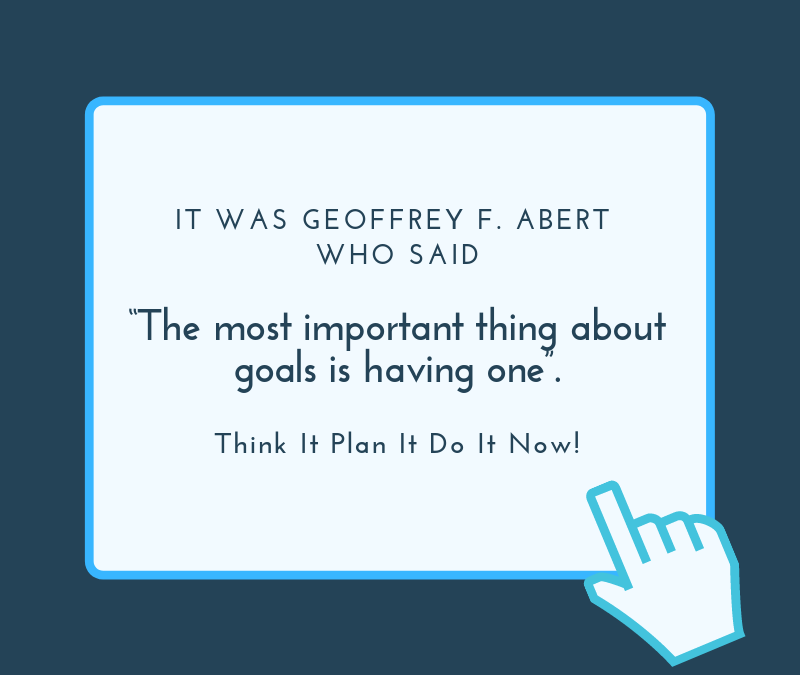
by Anthony Francis | Aug 4, 2021 | Uncategorized
For a Project Manager, managing a project isn’t easy, as there are a number of moving parts that need to be carefully coordinated if you are to be successful in meeting your project deadlines.
Below, I have highlighted 5 things you need to know when managing a project.
- Clarity
Who may have heard this many times before but it’s essential as a Project Manager to have real clarity on the nature of the project you are working on. You see Project Clarity enables you to understand the purpose and the specific outcome of the project you are working on. This is essential as without it many individual and business project become confused and therefore fail to meet their overall objectives.
- Strategy
Today projects are managed by different kinds of methodology. So in order to successfully plan and implement a project you have to first develop a clear Strategy that defines the actions either you and your project team are going to take. This is important as it will help you identify the necessary tools or additional resources required, and what should be prioritised to achieve the desired goals.
- Growth Tactics
Once started projects become dynamic undertakings. Despite best efforts of a Project Manager there will be unforeseen events that will impact the project as it progresses. There will be the need to mitigate risks, delivery times may slip, etc. So you need to ensure you adapt project growth tactics that enable you to see the big-picture, so that you can adapt and change to ensure you still meet your critical deadlines.
- Skills
Managing a project requires a number of different skill sets. These include but not limited to leadership, organisation, time management, interpersonal and communication to name but a few. These skills are essential if you are to effectively communicate, influence, negotiate and think strategically during the project.
- Insight
Last but not least, as previously mentioned projects are dynamic, this means it’s important to maintain an overall project business insight that combines both data and analysis to increase your understanding of any situations as they arise, which may result in some competitive advantage for either you or your organisation.
Want to know more?
With over 20 years Project Management Experience, I provide Coaching & Mentoring to both new and experienced Project Managers who are looking to further develop and enhance their Project Management Skills. If you would like to know more contact me via my website www.thinkitplanitdoitnow.com.

by Anthony Francis | Feb 7, 2021 | Uncategorized
After taking early retirement at the age of 55, I took time out to reflect on some of my personal achievements, and successes of my career.
I had been Project Director for the $250M British Airways global IP program, served as Head of Global Service Operations Management for Orange Business Services, Programme Manager of the £20M Diabetes & Tesco Partnership, as well as setting up the £6M Mind & Co-op Charity Partnership, to name but a few.
In addition, I had paid off my mortgage by the age of 47, and helped both my adult children onto the property ladder.
However, it has only been in the last year via my Business Coaching practice, that I have become more aware from my black clients of the large number of challenges they are either accepting, or finding it difficult to overcome in their own lives and careers. The challenges to their confidence, ability and their career aspirations.
The reason for my surprise, was in part due to my own “no holding me back” mindset. During my career, I have never experienced a situation in which I felt held back from realising what I felt was my full potential. Yes, I have experienced racism, I’ve been told “you sounded European on the phone” when I met the person face to face, or when on a business flight a passenger gave me his coat to hang up, saying he mistook me as ‘staff.
I’ve even been told by a Directors PA, that upon being asked to collect me from the reception for the first time, was told they went back to their director and said “there is nobody down stairs except a black guy.”
All of these incidents at the time were surprising, but I didn’t let any of them effect the way I went about my job, or felt in any they would be barriers to me progressing further.
This mindset combined with my own self belief and confidence has enabled me to reach certain personal, and professional milestones.
However, it is clear to me that due to some individuals working environments, in which they find themselves as the only non-white person, they have not had the support, sponsorship or mentoring, to allow them to fully progress in the careers. Indeed, some feel that they should be “grateful” for the positions they have, and this is further reinforced when talking with friends or family.
This in turn has led some to play down their career aspirations, so as not to come across as too ambitions, thereby not putting themselves forward for new opportunities they otherwise would.
In addition, due to being a non-white has led some of my clients to develop an imposter syndrome mentality, where they feel nervous, or not willing to contribute in meetings, as they feel there point of view will not be taken seriously.
The situations I have had mentioned above are indeed challenges, but they can be overcome, but how?
There are 3 things that I believe if they were adopted and implemented regularly can help individuals overcome these challenges.
- Make yourself known. Nobody is going to blow your trumpet about what you have achieved, or how good you are better than yourself. So you need to become a skilled networker. You need to ensure that when in meetings you are contributing, collaborating and providing constructive feedback. Doing so will give you visibility, and create credibility in both yourself and what you say. This will then give you both exposure to other individuals within your organisation, but also allow your network of contacts to increase outside of your department.
- Review your circle of friends and associates. We are heavily influenced by those whose company we spend most of our time in. If you’re looking at starting a new business for example, then join a business start up group, make contact with those who you either know personally, or can be referred to who have successfully started a business. If you’re seeking a promotion, or looking to move careers, then network with others either in your organisation, or seek advice from those who have successfully pivoted into a new position or role. The point of this is seek knowledge and support from like-minded individuals, who also have the same mindset as yourself, and can provide both insight and encouragement.
- Be willing to take action. I have written a book titled “Think It Plan It Do It Now”! The sole purpose of the book is to get people who have goals or aspirations to take action by thinking through carefully what it is they want to achieve and why, to then formulate a plan based on identifying the different stages involved, and then to have the confidence to then take action to achieve their goal. It’s a formula that sounds simple, but which most people find difficult to do because of two key things distractions, and procrastination. My book is one of many in the ‘self-help’ category. Sadly, most of these books become ‘shelf help’ because that’s were most end up, and as a result goals, and aspirations become unfulfilled.
The points above are useful reminders of what can easily done to help individuals in predominately white organisations, to feel both less insecure of themselves, and in turn develop more of a ‘can do’ approach to allow them to develop their confidence, and take a more proactive approach on any new opportunities they may be interested in.
What should also not be underestimated is the personal achievements of the individual themselves. They should recognise their own “talents” in what they have had to overcome to get where there are today. They should reflect on these challenges, and use that to remind themselves that the only thing holding them back is their own “Self-Belief”. To use that to create a “New Belief” in themselves that, “nothing is going to hold them back”.

by Anthony Francis | Mar 4, 2019 | Uncategorized
I was having a conversation with a friend who said “I wish I could pay off my mortgage like you”. I paused for a moment then said, okay great, if that’s what you really want to do then what is stopping you? They then went on to explain about their job, lack of time, not knowing what to do, and other such things.
They then repeated the same phase again but differently, “I wish I could be in your position, mortgage free, it would make such a massive difference to me”.
It was then that I said, “do you think that I paid off my mortgage by simply wishing”? I explained to my friend that 12 years earlier I had contacted my then mortgage company and asked how I could reduce my mortgage from 25 to 12 years? I explained that they told me if I converted my then endowment mortgage into repayment, I could then choose the length of time I wished to take to repay the mortgage.
I then asked the mortgage company to recalculate my payments over 12 years, giving me the amount and date the final payment would be due. With that I explained that I then went away and put together a plan in which I reduced or closed any other financial liabilities that I had, so I could pay the extra needed to cover the increased cost of my new repayment mortgage.
I further explained that at the time I didn’t own a car, and reduced things like going on annual holidays, and anything that was not necessary to a minimum, as I had two young children, and my wife only worked part time hours when she could.
I went to say that one of the most important things that I did at that time, was to keep a record of what my mortgage balance was every month after each payment, so I could be encouraged as the balance started to go down as the years went by. I also mentioned that I still have some old original print outs that I’ve kept as a reminder of that time.
I made it clear that I simply didn’t wish to clear my mortgage, but that I made at the time some detailed research on how I could be done, I identified what changes I would have to make to do it, I put together a plan of action and then took appropriate and consistent steps over the next 12 years to achieve it.
As I explained this to my friend I could see parallels of why so many people who go into business either fail to achieve the goals they set for themselves, or why their businesses fail altogether. It’s clear that had they good intention and not planned to fail, but they simply failed to do the appropriate planning to make their goal a success. Don’t make that be YOU!
If you want to know how to avoid the struggles and overwhelm that goes into goal creation, planning and implementation, and want to have a proper structure in place for its success then give me a call, I look forward to talking with you.

by Anthony Francis | Dec 10, 2018 | Uncategorized
1. Be Passionate – People rarely commit to things that they don’t enjoy doing or are not passionate about. So, make sure that whatever goals you set for yourself, they are ones that will motivate you to get up in the morning to want to see through.
2. Believe in yourself – Remember that the only person standing between you and your goal, is yourself. So, it’s important that you believe in yourself and your abilities in whatever you set out to do.
3. Take action – The title of my book is Think It, Plan It, Do It Now! Not Think It Plan It Do It Later. So, I hope by reading it, will enable you to take real action to achieve your goals.
4. Don’t be a perfectionist – Nothing is perfect, there will always be room for improvements that can be made. So, don’t let waiting for that ‘moment’ be the reason you fail to take action on your goals.
5. Meditate – How many times have you found answers to questions when your mind is relaxed? We live in an age where we have information overload. So, take time to relax and calm your mind, so you can tap into your unlimited potential.
6. Brainstorm – You’ve possibly used this technique in a workplace setting. But getting a sheet of paper and simply starting with a heading, let your unconscious mind explore and list down the ideas that come to you.
7. Read, listen & learn – It is likely that whatever you would like to achieve with your goals, that someone has already accomplished it. So, take inspiration from their stories and journeys. Read motivational books, listen to podcasts and recordings, and in the process become the person you want to be.
8. Be determined – Achieving a goal is not always easy. It will require sacrifices, and you will experience both highs and lows along the way. However, it’s being able to stick with it when the going gets tough, and by being determined to see through what you started, that will get you your goal.
9. Be open-minded – We don’t know the answer to all the questions. So, when setting out on your goals, you’ve got to be open-minded that the direction you set course for may not be the best one. Be open to that, and don’t take it personally.
10. Cooperation – You’ve heard the term two heads are better than one. Never be afraid to seek advice and help from others. You will be surprised where that advice can take you if you ask and seek help.

by Anthony Francis | Jul 4, 2018 | News
We’ve now become accustomed to hearing that different sports men and women, have coaches to help improve their game. Indeed, we think nothing of seeing the likes of Roger Federer or Serena Williams with their practice coaches before a game.
Even without thinking we can determine that having a sports coach is to help improve someone’s performance, or to iron out any areas that they are having with their game, so as to bring them as close to perfection as can be. Indeed, individuals like Roger Federer or Serena Williams employ a number of coaches, not only the ones we see them with on the practice court, but also for things with nutrition and wellbeing.
So given that we can see the benefits for sports men and women, why do we find it so difficult to see the benefits in coaches in helping businesses?
One reason is the fact that the term ‘Coach’ is not fully understood, and as a result is open to interpretation which causes confusion. So before I go any further let me give you my definition of a coach in a business context. “Business coaching is about developing bespoke processes that enables both individuals and businesses alike to achieve their full potential through partnership and collaboration”.
Business Coaching is not about Training which is about imparting new skills or knowledge, It’s not about Consultancy which is about external expertise in a particular area, it’s not about counselling which is about specialist activity into personal problems, and it’s not about Life Coaching which is about focusing on individual goals and aspirations. There is of course nothing wrong with these specific interventions, I mention them as they are the common areas that ‘coaching’ is often confused with.
Of course you can get coaches who have specific ‘niche’ areas within business, such as Marketing, Career, Branding etc. But they will all be about developing bespoke processes that enables both individuals and businesses alike to achieve their full potential through partnership and collaboration.
So if you engage with a coach for your business, you will be getting someone with specific skills and experience, who will be looking specifically at the required fundamentals needed that will make a difference, someone who is outcome focused, so that the business takes sustained action to help achieve rapid results.
They will in turn help the business to look at new skills and methods, which will help improve time efficiency and bring about sustained change and overall improvement.
A Business Coach can also be mirror that provides the unbiased feedback you need to help move a business forward. They provide someone to hold you accountable, and help develop your own self-confidence.
So going back to my opening statement, I hope you now can see that a Business Coach provides the focus, perspective and skills, to name but a few to help take a business forward, and should be seen as a valued asset to any business.





